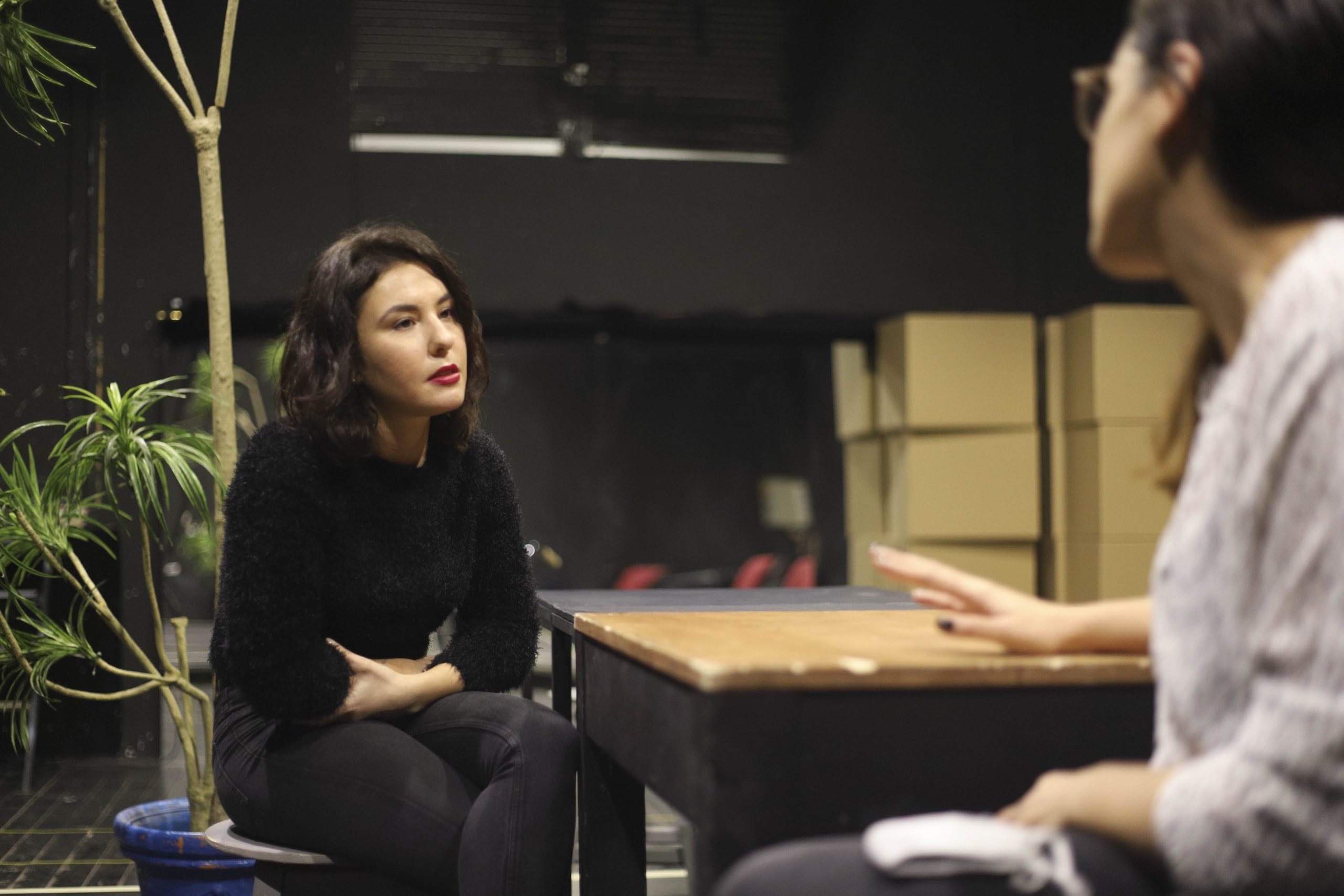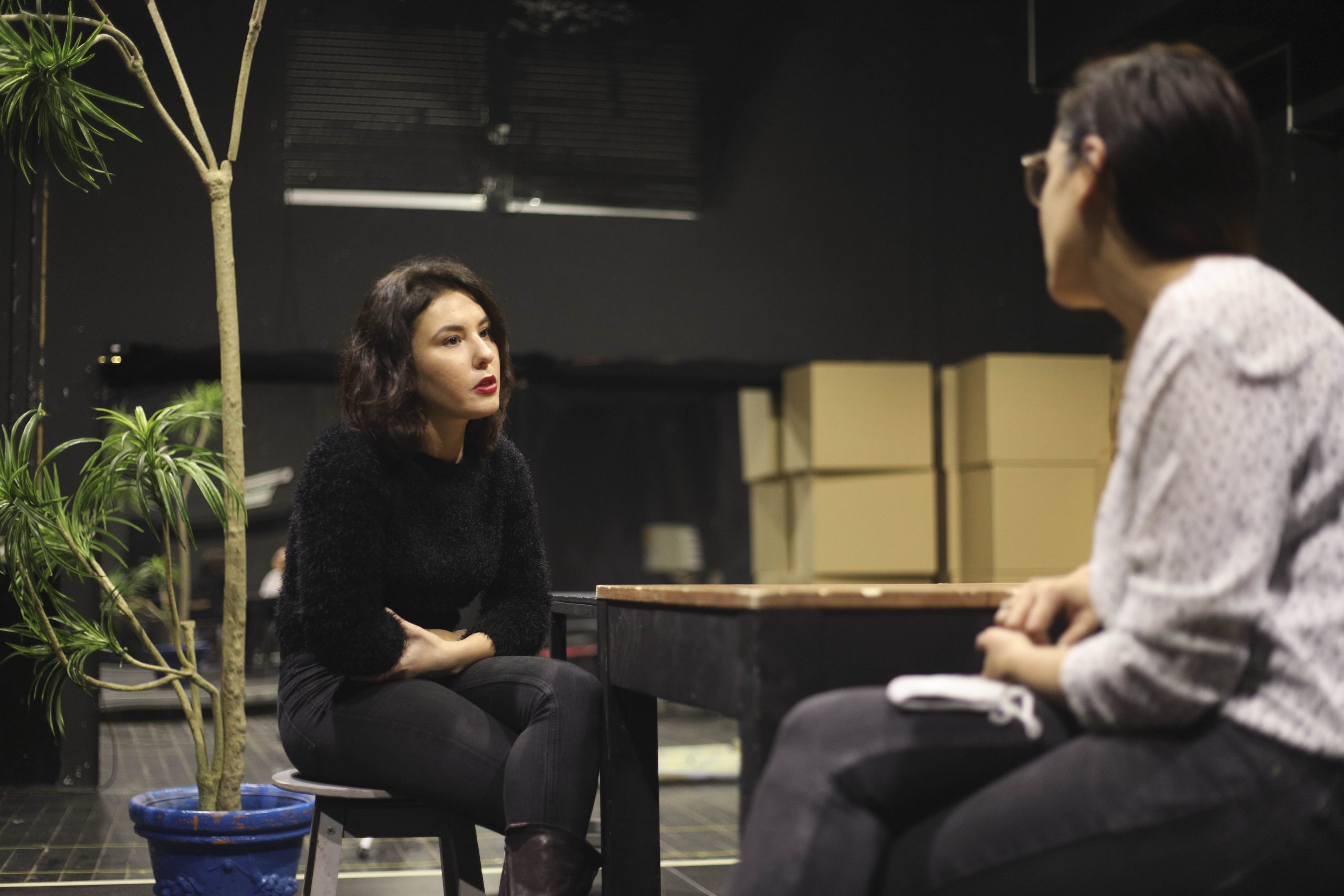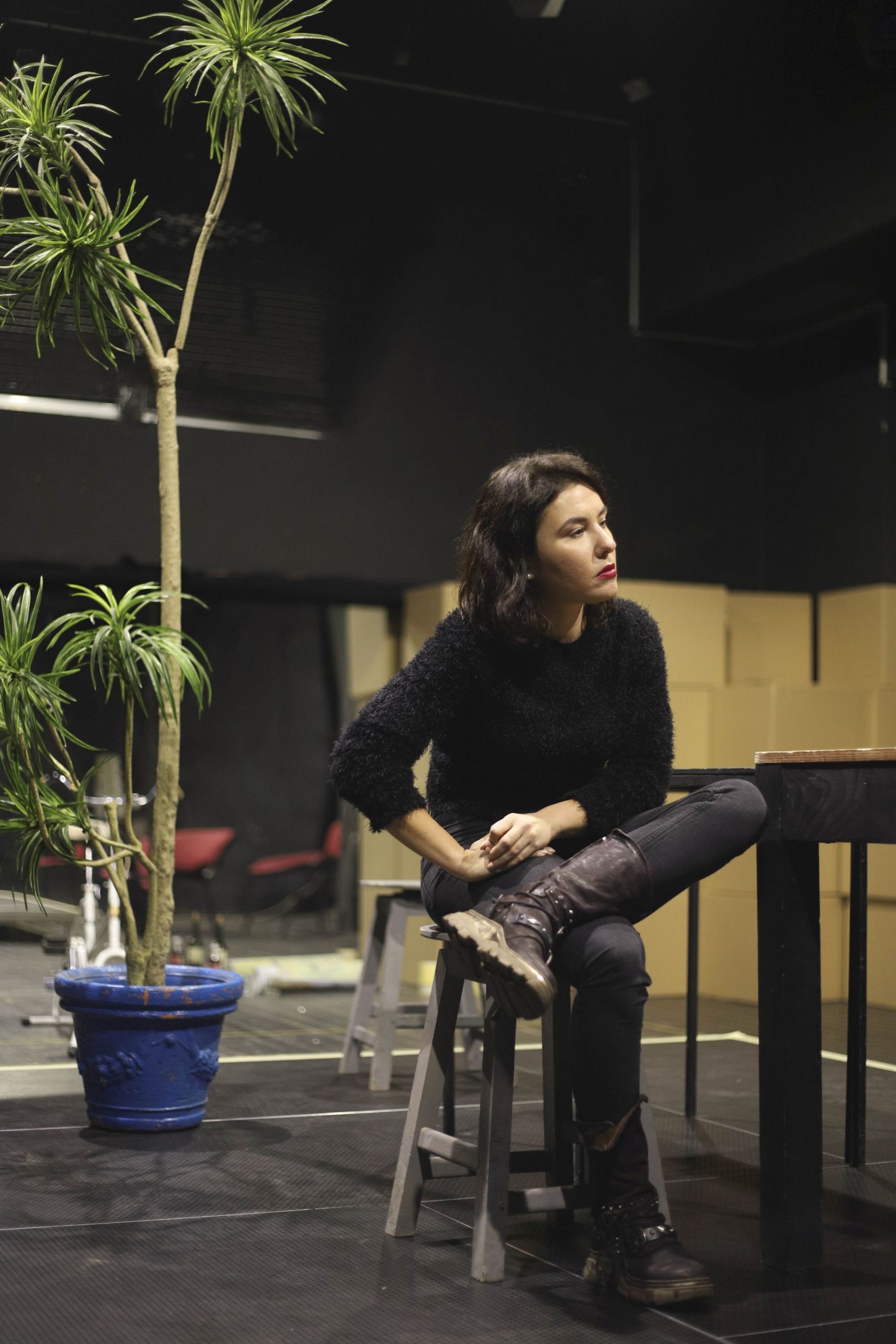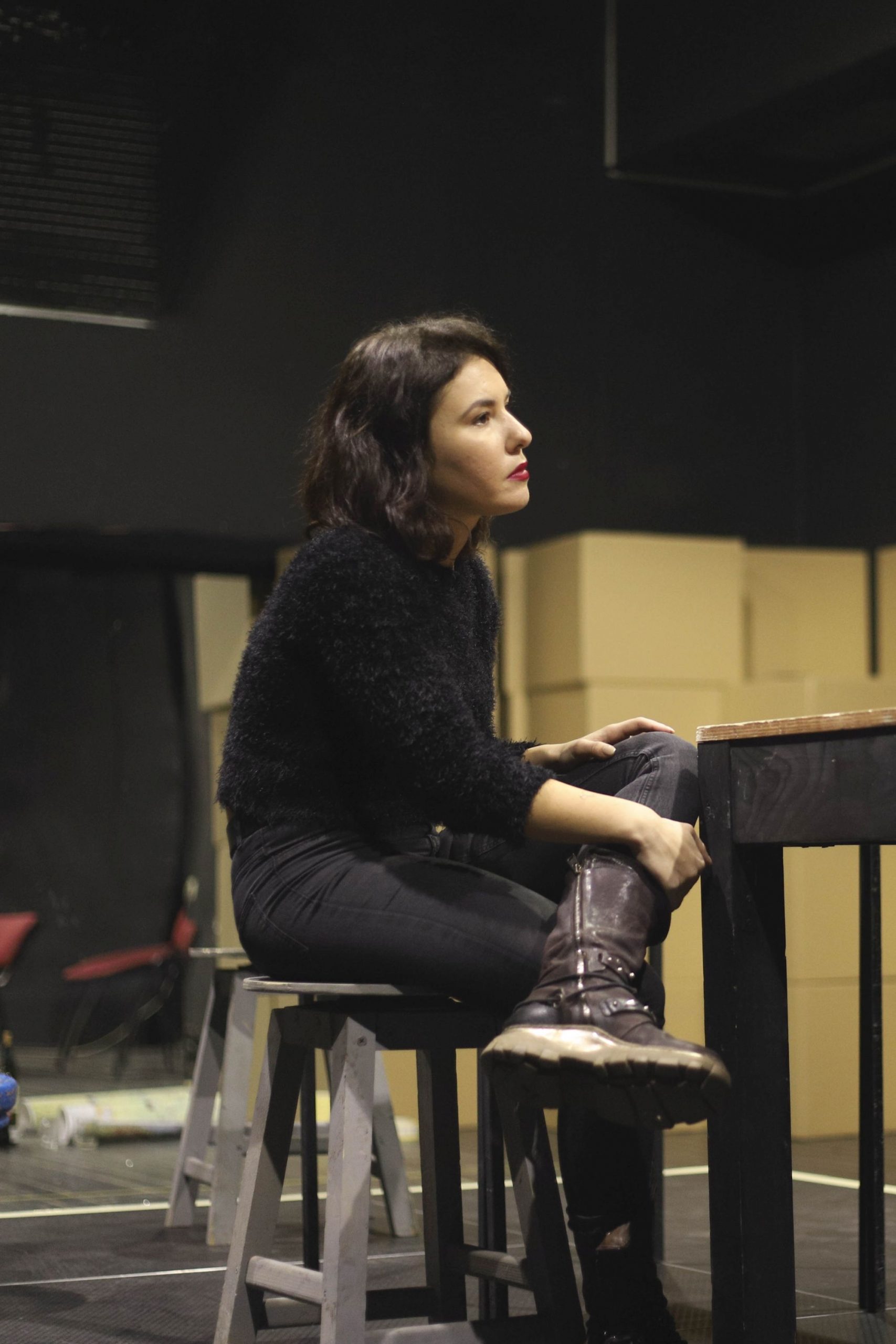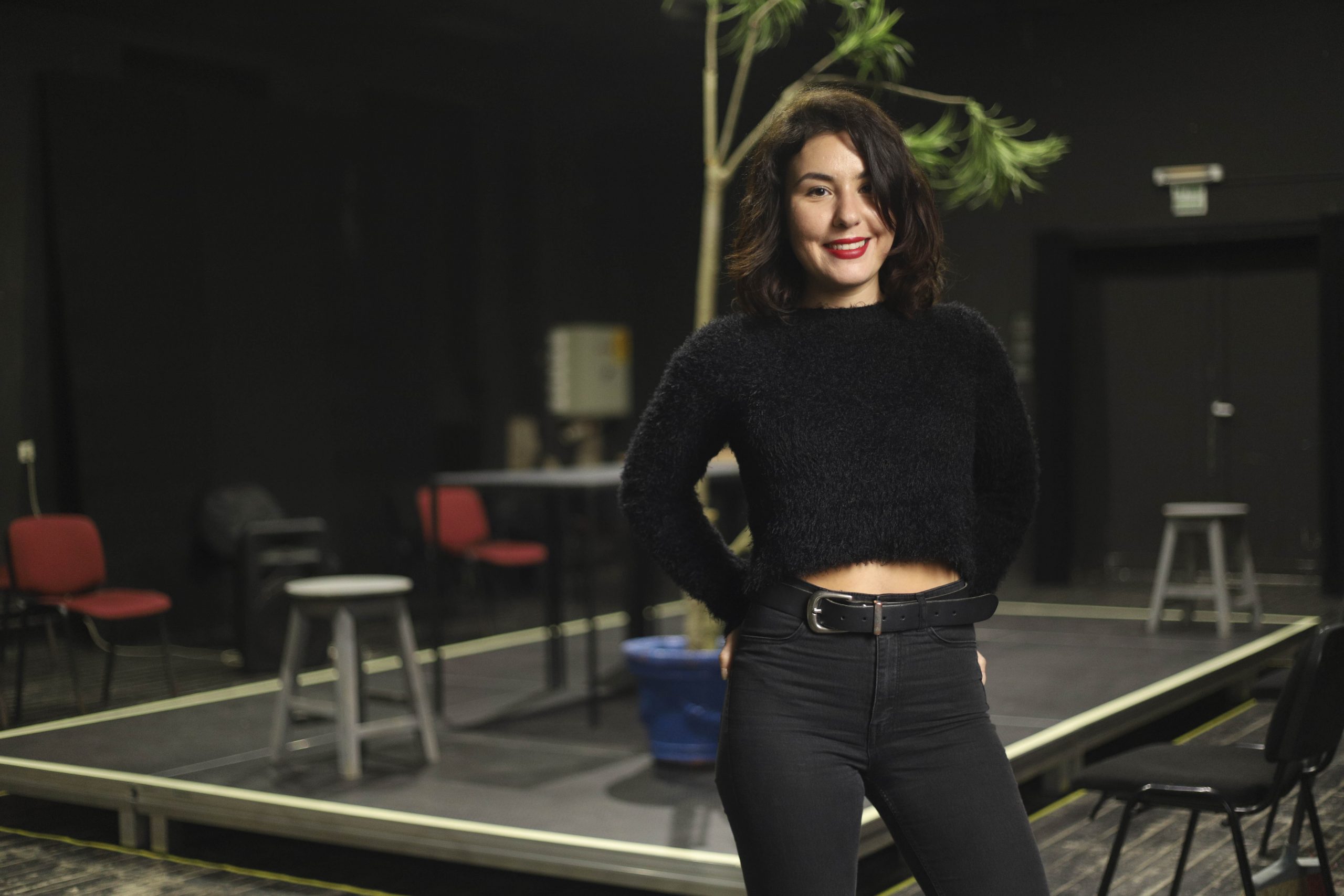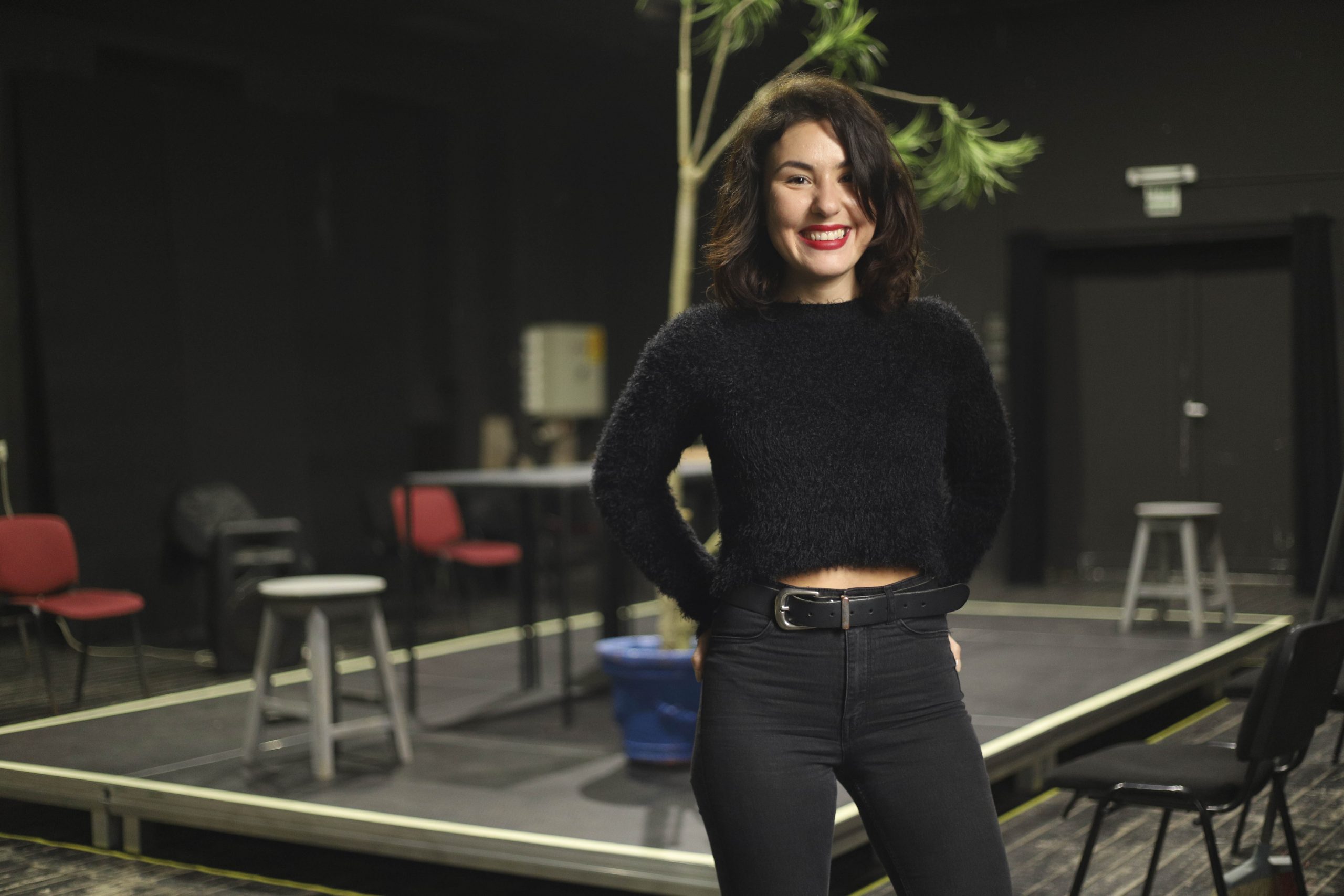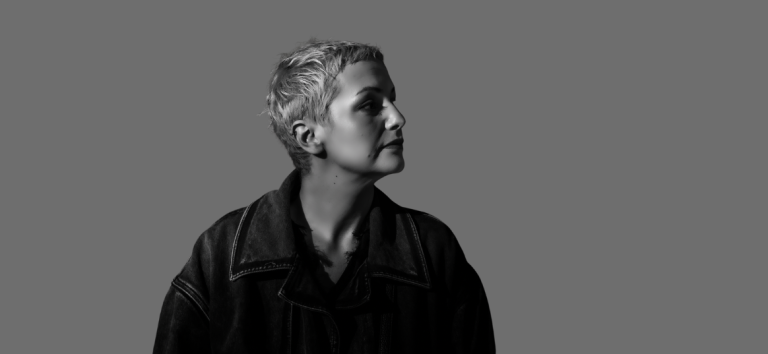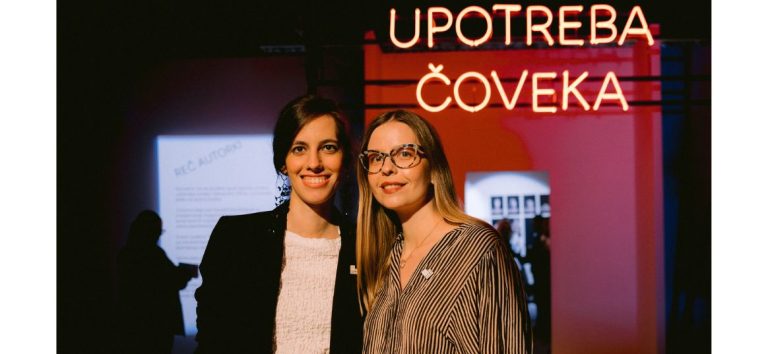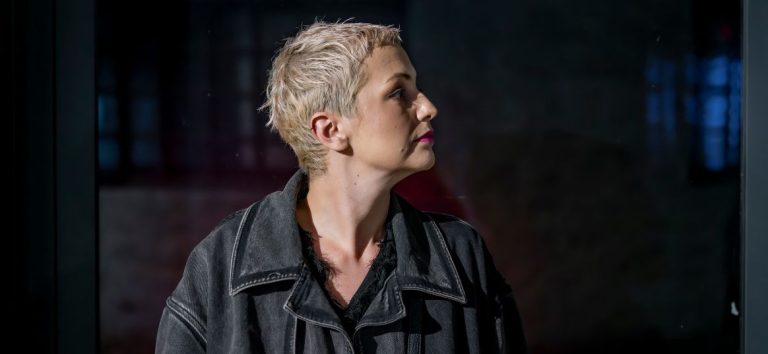Novi Sad is home to the oldest professional theatre in Serbia, one of the most significant theatre festivals in the country, it’s a city where numerous film artists worked and created. It seems the young artists have refreshed the local film and theatre scene in the last couple of years. Among them is a 27-year-old film and theatre director, Ivana Janošev.
We talked with Ivana Janošev in the Novi Sad Theatre, where she’s currently working on a play ‘Pod istim krovom’ (en. Under the Same Roof), whose premiere is expected early next year. Her play ‘Pojačalo i gitara’ (en. Amplifier and Guitar) inspired by Slobodan Tišma’s short story, done in the Serbian National Theatre as part of the Novi Sad Omnibus, should be back on the repertoire soon, since the pandemic stopped staging the play after only two performances. At the same time, Ivana is working on her first feature film.
They say big artists knew what they wanted to do ever since they were little. Is this the situation in your case as well? When did you realise you wanted to dedicate yourself to film and theatre? I can’t praise myself for such determination. I think I came up with that idea in high school. I used to watch a lot of movies back then, they sort of helped me overcome my puberty days. I went to Karlovačka Grammar School, with a lot of kids who were also interested in art and film, so we would gather together and talk about movies, what we read and that’s when I realised I would like to make that my career. Recently, you’ve conducted a documentary film workshop in the Egység Cultural Station within the Dead Capital project, which is also the name of your first documentary film. What could the participants of the workshop learn from your film about making a documentary, and what did you learn from the whole workshop experience that you could, maybe, implement in your movies in the future? We wanted to take a short, student documentary film as a motive for talking about how the idea, the need to tell a certain story, is the most important thing when it comes to making a documentary movie, after which everything kind of falls into place. It was a no-budget film, with no film experience whatsoever, but people still had positive reactions towards it. The reason for it is honesty. I learn that over and over again. The film I’m working on right now is a feature film and it’s my personal story: my dog Karlito and I are the main characters, so I believe it’s obvious that introspection and honesty are the base of what I do. The Novi Sad audience probably knows you best for the play ‘Ice Cream’ that you directed and that people say is one of those plays you go to see many times, each time ending up laughing and crying. In your opinion, what is it in your works that causes such emotions and make people come back to them? I directed that play while I was still studying. I wouldn’t say I’m the reason people like to see it several times or that I’m the reason they feel so emotional about it. The reason for that is the topic of the play, the mother-daughter relationship, something that is contemporary and close to the audience. Mothers, daughters, grandmothers, they all come together to see the play and they cry and laugh together, because they inevitably relate to the characters. The actresses Kristina Savkov and Bojana Milanović are equally important; each time, they approach the play with a lot of love and honesty. They don’t let it become dull, they adorn it with their brilliant performance.
You directed documentary and feature films, theatre plays, as well as television shows among which is the popular Dnevnjak. Did you consciously want to try out your skills in all those different areas or did it happen spontaneously? Dnevnjak happened completely randomly, I didn’t even know what it was. It was already being filmed and broadcast when I jumped in the place of a director who couldn’t make it one time. As it turned out, I ended up doing it around the time it was broadcast on the Radio Television of Vojvodina. Dnevnjak has been the most difficult directing experience for me so far, because I didn’t have any experience in that kind of form before that. In addition to this, I, as well as the author, was put in a weird situation where I would direct something I didn’t write. Which of these forms would you say fit you most? If you could choose between being the film director and the theatre director, what would you choose and why? I’m still indecisive. When I’m in the theatre and I encounter a difficulty, I think to myself – it’s fine, I’ve still got film, film is kinder to me. Then, when I’m working on a film and something goes wrong, I think – I’m going back to the theatre. In what ways or through what channels of communication can young directors become visible to the wider audience in our country? If I knew the answer to this question, I would become visible (laughs). Getting recognized and receiving awards is probably something that helps people notice you, although I believe the people who notice you are still those of the same profession as you. Still, I think even that’s pointless, as there are less and less people interested in art films and theatre. Sometimes it seems to me that authors do certain projects in order to discuss it with their colleagues afterwards, without having audience in the whole story.
An artistic occupation usually means a certain dose of financial insecurity, but, on the other hand, it entails a great amount of freedom. According to you, what are the cons and pros of doing this job? I’m lucky to be working in the production company 888 Films, with my colleague Ana Revnica, where I work on selling the film, its distribution and production. It sort of frees me from worrying about the finances, while also not restricting me from doing theatre and film. Where in Novi Sad do you take your friends when they pay you a visit? I can barely remember (laughs). They usually visit during the summer, so we often go to the Bećarac, Ribarac and Oficirac beaches… What cultural, sports or entertaining events in the city you always go to? Which events are of your finest memories? I’m not the right person to answer this question because, during the past couple of years, even before the pandemic, I’ve almost stopped attending events. However, I still like to see a film at film festivals, usually within the Slobodna Zona or FEST festivals. I used to go to the Sterijino Pozorje festival when I was a student, I never missed one. When I was younger, I went to To Be Punk festival and EXIT festival every year. Photo: Uroš Dožić


